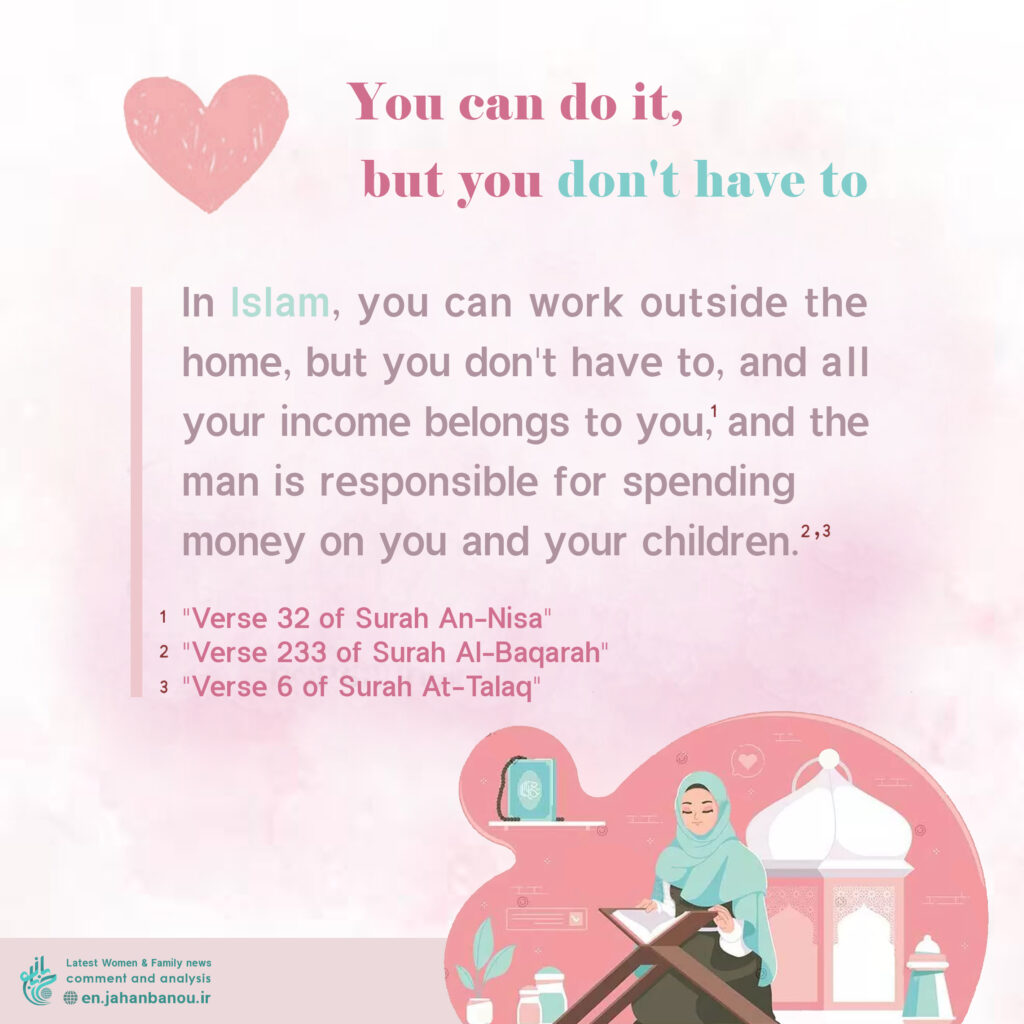Women’s economic rights in Islam are meticulously and equitably defined. While Islam does grant women the right to work and own their earnings, the emphasis on a husband’s financial responsibility is also a significant aspect of Islamic family law.

Women’s rights have been examined from various angles in the Qur’an. Contrary to what some people think, women’s rights in Islam are completely fair.
Women’s Economic Rights in Islam
Here’s a breakdown:
- Right to work: Islam encourages women to work and contribute to society. They have the right to choose their profession and keep their earnings.
- Ownership of earnings: Women have full ownership over their earnings and can use them as they see fit.
- Husband’s financial responsibility: Islamic law places a primary financial responsibility on the husband to provide for his family. This includes food, shelter, and clothing.
In Islam, women are allowed to work outside the home if they choose to, but it is not obligatory. According to Verse 32 of Surah An-Nisa, a woman’s income is her own, and Verse 233 of Surah Al-Baqarah states that men are responsible for providing for their families. Additionally, Verse 6 of Surah At-Talaq emphasizes the importance of financial support from men towards their wives and children.


